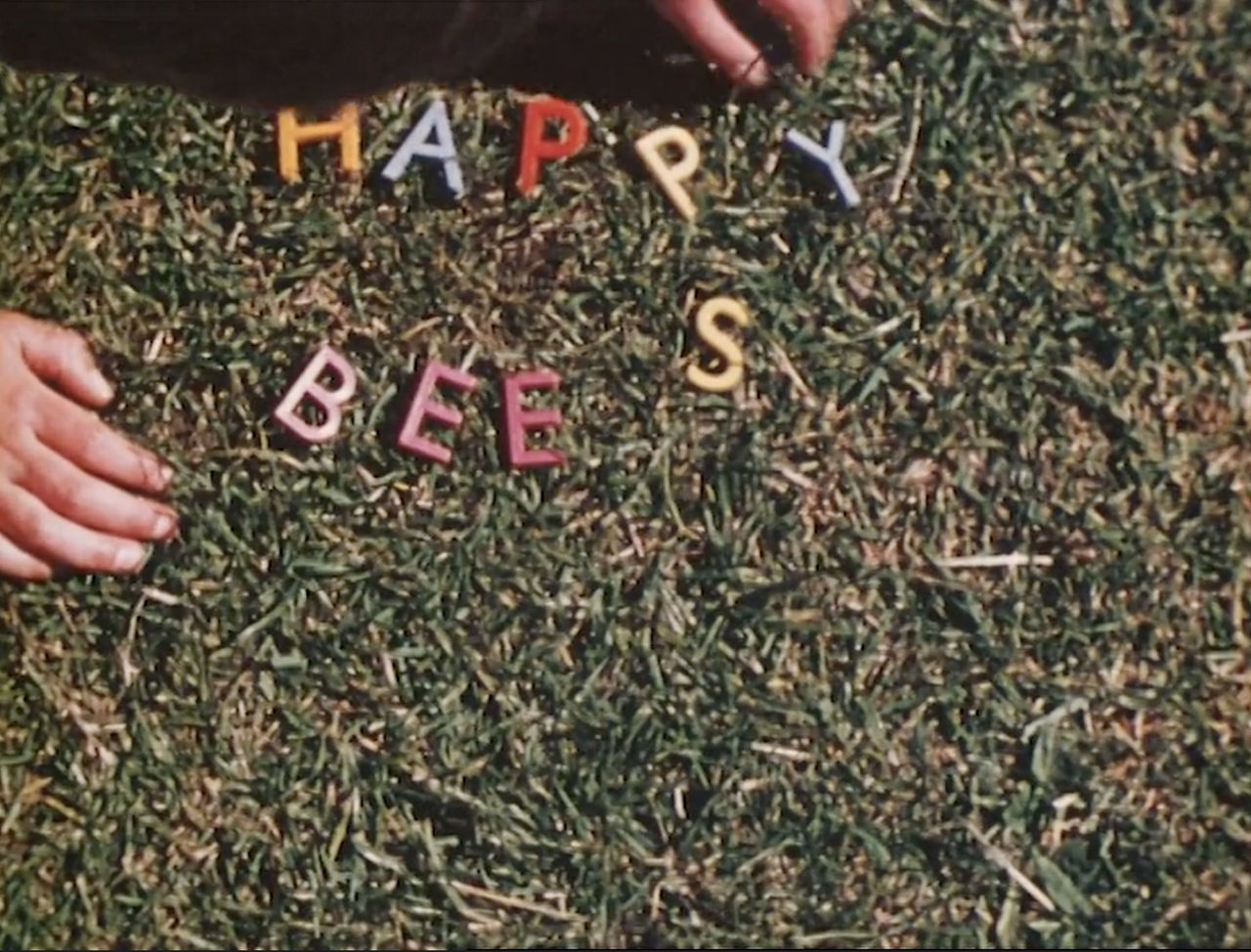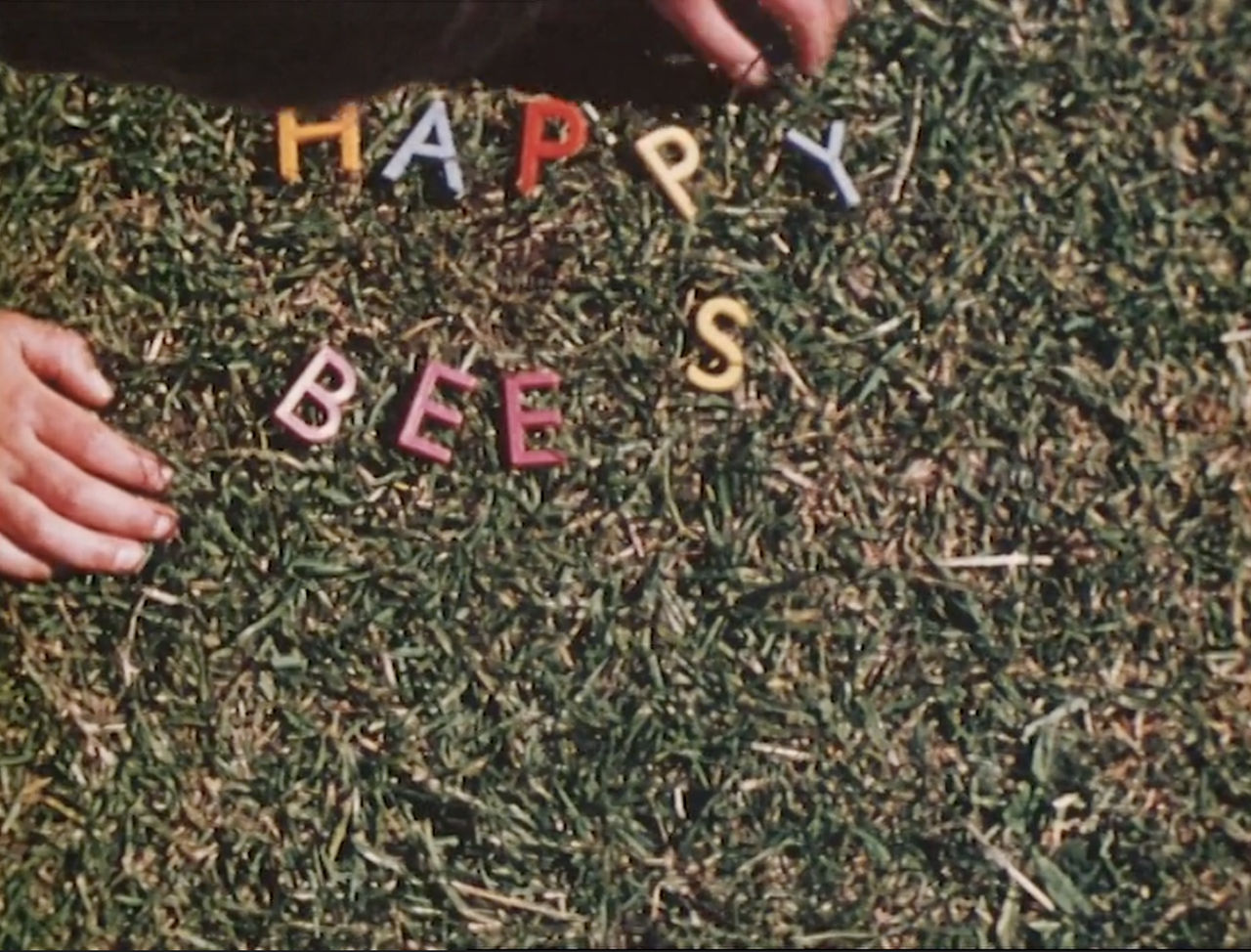
Happy Bees (1954) by artist, poet and filmmaker Margaret Tait (1918–1999), is one of her earlier works, set on the island of Orkney, the birthplace of Tait.
Margaret Tait was the first Scottish woman to direct a feature film, and worked as an independent artist across film, art and poetry. She is considered an avant garde filmmaker who also was an innovator of film credits design; using cut-up paper, drawings and plastic letters. Her innovative title credits can be seen at both the start and end of Happy Bees.
Tait, who has described her work as film poems, lets one of her often used subjects take centre stage in Happy Bees; nature and its transformative power. The film can be seen as a poetic interpretation of island life, of childhood, preservation, change and remembrance. Depicted in the film is Tait’s brother's children. In a voice-over towards the end of
Happy Bees (1954) by artist, poet and filmmaker Margaret Tait (1918–1999), is one of her earlier works, set on the island of Orkney, the birthplace of Tait.
Margaret Tait was the first Scottish woman to direct a feature film, and worked as an independent artist across film, art and poetry. She is considered an avant garde filmmaker who also was an innovator of film credits design; using cut-up paper, drawings and plastic letters. Her innovative title credits can be seen at both the start and end of Happy Bees.
Tait, who has described her work as film poems, lets one of her often used subjects take centre stage in Happy Bees; nature and its transformative power. The film can be seen as a poetic interpretation of island life, of childhood, preservation, change and remembrance. Depicted in the film is Tait’s brother's children. In a voice-over towards the end of the film we hear Tait declare: “The children are not far away, the children live here”.
About Happy Bees, the filmmaker herself has stated: “Happy Bees was intended to be an evocation of what it was like to be a small child in Orkney; when, one (wrongly) remembers, it was sunny all the time, and everything is bursting with life. A film about what surrounds a child, so quite a lot of it is watched at child level.”
Happy Bees (1954) is part of the initiative #fromKStoyou. Even though our doors are closed, we are bringing you art through our digital channels, and also through banner art on our building. On our website, we are showing video works that can hopefully ground and inspire, and bring joy and calmness at this moment in time.
All photos: Stills from Happy Bees, 1954, 16mm transferred to SD video, 00:17min.
Courtesy of Margaret Tait and LUX, London.
b. 1918
Born in Kirkwall on Orkney, Scotland, Margaret Tait qualified in medicine at Edinburgh University 1941. From 1950 to 1952 she studied film at the Centro Sperimentale di Photographia in Rome. Returning to Scotland she established Ancona Films in Edinburgh’s Rose Street. In the 1960’s Tait moved back to Orkney where over the following decades she made a series of films inspired by the Orcadian landscape and culture. All but three of her thirty two films were self financed. She wrote poetry and stories and produced several books including three books of poetry.
Screenings include National Film Theatre (London), Berlin Film Festival, Centre for Contemporary Art (Warsaw), Arsenal Kino (Berlin), Pacific Film Archives (San Francisco), Knokke le Zoute, Delhi and Riga. The feature length Blue Black Permanent (1993) opened the Edinburgh International Film Festival. Her final film Garden Pieces was completed in 1998.

